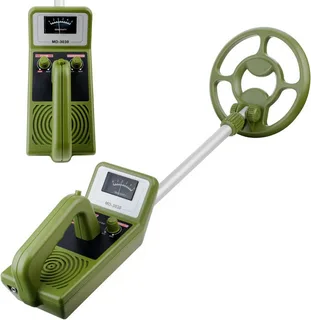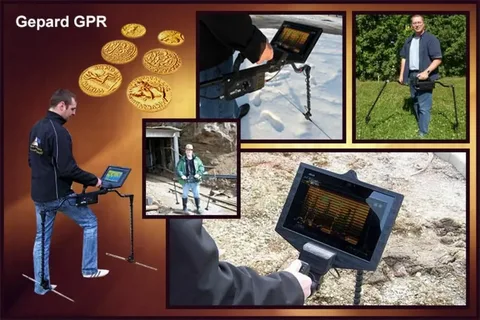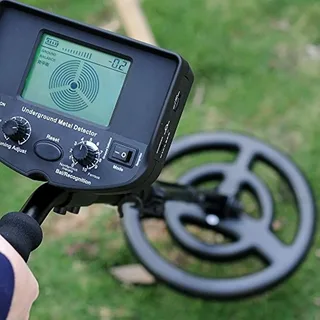Metal detector detection technology has taken a significant leap forward with the development of a new system that can detect the presence of metal detectors in high-security areas. This cutting-edge technology promises to enhance security measures and prevent potential threats in sensitive locations. The metal detector detector is a groundbreaking innovation that is set to revolutionize security protocols and provide an unparalleled level of protection. This article will explore the capabilities and implications of this new technology in high-security environments.
The new technology uses advanced sensors and algorithms to detect the presence of metal objects in high-security areas. It is designed to provide an additional layer of security by identifying potential threats that may be overlooked by traditional metal detectors. The system is capable of pinpointing the exact location of the metal object and alerting security personnel in real-time, allowing for quick and effective response. This technology has the potential to enhance security measures in sensitive locations such as airports, government facilities, and critical infrastructure sites.
The Science Behind Metal Detector Detectors

Metal detector detectors, also known as metal detector interference detectors, work by detecting the electromagnetic fields created by metal detectors. When a metal detector is in use, it creates electromagnetic fields that can interfere with nearby electronic devices. Metal detector detectors are designed to pick up on these electromagnetic fields and alert security personnel to the presence of a metal detector in the area.
The science behind metal detector detectors involves the principles of electromagnetic field detection and signal processing. Metal detector detectors use specialized sensors to pick up on the unique electromagnetic signals produced by metal detectors. These sensors then process the signals and alert security personnel to the presence of a metal detector.
Metal detector detectors are commonly used in security settings, such as airports, to prevent individuals from using metal detectors to bypass security measures. By utilizing the science behind electromagnetic field detection, metal detector detectors help to maintain the integrity and effectiveness of security procedures.
How Metal Detector Detectors Work and Why They’re Important

Metal detector detectors work by emitting a low-frequency electromagnetic field and detecting any disruption or change in the field caused by the presence of a metal detector. This technology is important for security purposes as it can help identify individuals who may be attempting to bring prohibited items, such as weapons or other metal objects, into sensitive areas such as airports, government buildings, or event venues. By alerting security personnel to the presence of a metal detector, these devices can help prevent potential threats and ensure the safety of the public.
Choosing the Right Metal Detector Detector for Your Needs

When choosing the right metal detector for your needs, determine what type of metal detecting you will be doing. If you will be searching for coins, relics, or jewelry in parks or on beaches, a general-purpose detector will suffice. However, if you will be prospecting for gold or searching in highly mineralized ground, you will need a specialized detector with advanced features. Additionally, consider factors such as weight, battery life, and ergonomics, as these can affect your overall experience and comfort while using the metal detector. Finally, set a budget and research different models within that price range to find the best option for you.
Common Uses for Metal Detector Detectors in Security and Law Enforcement

Metal detector detectors are commonly used in security and law enforcement for a variety of purposes. These devices are used to detect and locate hidden weapons, firearms, and other metal objects that may pose a threat in public spaces, airports, government buildings, and other sensitive areas. They are also used to screen individuals for concealed metal objects during security checks and inspections. This technology helps to enhance safety and security measures by identifying potential threats and preventing unauthorized individuals from carrying dangerous weapons into secure environments. Additionally, metal detector detectors are used in law enforcement investigations to locate and recover metal evidence such as weapons, ammunition, and other items related to criminal activities. Overall, these devices play a critical role in maintaining public safety and security in various settings.
The Evolution of Metal Detector Detector Technology
The Evolution of Metal Detector Detector Technology has seen significant advancements over the years. From the initial development of simple hand-held devices to more sophisticated technologies such as pulse induction and very low-frequency detectors, the industry has made tremendous progress. These advancements have improved the accuracy and sensitivity of metal detectors, making them increasingly effective in various applications such as security screening, archaeological exploration, and resource mining. Additionally, modern metal detector detectors are also equipped with advanced features such as digital signal processing, multi-frequency capabilities, and improved target discrimination, making them more efficient and user-friendly. These developments have played a crucial role in expanding the utility and versatility of metal detector technology in diverse fields.
Understanding the Limitations of Metal Detector Detectors
Understanding the limitations of metal detector detectors is important for security professionals and individuals responsible for maintaining secure environments. Metal detector detectors can be limited in their ability to detect certain materials, such as non-metallic explosives and objects, as well as in their accuracy and reliability in high-traffic environments. Additionally, environmental factors, such as interference from other electronic devices, can impact the effectiveness of metal detector detectors. It is essential to be aware of these limitations and to implement complementary security measures to ensure a comprehensive approach to threat detection and prevention.
Tips for Maintaining and Calibrating Your Metal Detector Detector
Here are some tips for maintaining and calibrating your metal detector:
1. Regularly clean your detector to prevent dirt and debris from affecting its performance. Use a soft, damp cloth to wipe down the exterior and a small brush to remove any debris from the search coil.
2. Check the batteries frequently and replace them as needed. Weak batteries can cause your metal detector to operate inefficiently or not at all.
3. Calibrate your metal detector before each use to ensure accurate detection. Most detectors have a built-in calibration feature that allows you to adjust the sensitivity and ground balance for different soil conditions.
4. Store your metal detector in a dry, cool place when not in use to prevent rust and corrosion.
5. Avoid dropping or mishandling your detector, as this can cause internal damage.
By following these maintenance and calibration tips, you can ensure that your metal detector is consistently reliable and provides accurate results.
The Impact of Metal Detector Detectors on Public Safety
See also: machine for mining gold
Metal detector detectors, also known as MD detectors, are devices used to detect the presence of metal detectors in a given area. These devices are used to enhance public safety by preventing individuals from bypassing security measures that are put in place to protect against potentially dangerous items, such as firearms or explosives.
The use of MD detectors has become increasingly important in public safety and security measures, particularly in locations such as airports, government buildings, and other high-security facilities. By detecting the presence of metal detectors, these devices can help to identify and prevent potential security threats before they escalate.
In addition to their use in high-security environments, MD detectors can also be utilized in public spaces and events to help ensure the safety of individuals in attendance. By identifying the presence of metal detectors, security personnel can take appropriate measures to address any potential security concerns and maintain a safe environment for everyone involved.
Overall, the impact of metal detector detectors on public safety is significant, as these devices play a crucial role in preventing and addressing security threats in a variety of environments. Their use helps to enhance security measures and ensure the safety of individuals in both high-security locations and public spaces.
Exploring the Role of Metal Detector Detectors in Airport Security
“Exploring the Role of Metal Detector Detectors in Airport Security” involves examining the use of advanced technology to detect individuals who may be carrying metal detector evasion devices. These devices are designed to evade traditional metal detectors, posing a potential security breach in airports. The study may include evaluating the effectiveness of metal detector detectors in detecting such evasion tactics and ensuring the overall safety of airport security measures.
Are Metal Detector Detectors Vulnerable to Interference or Evasion?
Metal detector detectors (MDDs) can be vulnerable to interference and evasion. Interference can occur when other electronic devices emit signals that disrupt the operation of the MDD, causing it to malfunction or provide inaccurate results. Evasion can occur when individuals use shielding materials or techniques to hide metal objects from detection, thereby circumventing the MDD’s capabilities. These vulnerabilities are important considerations for security personnel and manufacturers of MDDs in order to continually improve and adapt detection technology.












